#abolitionist
Text

This was her FAVORITE time of year... She should be spending it with family... she should be be alive. I'm pissed she's not. I'm so so pissed. I'm hurt. on the verge of tears.
Please dont forget her face, her name, her smile, her caring soul.
She wanted to be a nurse. Wanted to help mothers and babies... And she never got to.
The world was a better place when she was in it...
Merry Christmas Breonna... Thinkin ab you...
#justice for breonna#breonna taylor#say her name#abolish the police#abolish capitalism#abolitionist#black lives fucking matter#protect black women#protect black girls#remember her always#merry christmas breonna#thinking ab her heavy today
3K notes
·
View notes
Text
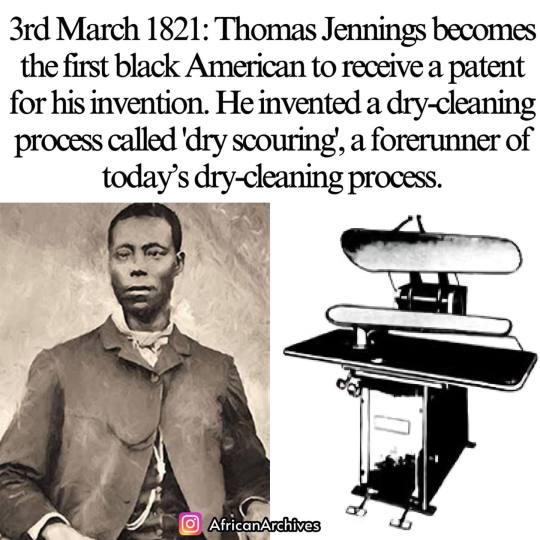
Thomas Jennings was a free man born in 1791 in New York City. He was 30 years old when he was granted a patent for a dry cleaning process. In his early 20s Thomas Jennings became a tailor, and later opened a dry cleaning business in the city. As a tailor. Jennings' skills were so admired that people near and far came to him to alter or custom tailor items of clothing for them. Eventually, Jennings reputation grew such that he was able to open his own store on Church street which grew into one of the largest clothing stores in New York City.
While running his business Jennings developed dry-scouring. He had many customers complain of their clothes being ruined by stains and so he began experimenting with cleaners and mixtures that would remove the stains without harming the material. He earned a large amount of money as a tailor and even more with his dry scouring invention and most of the money he earned went to his abolitionist activities. In 1831, Thomas Jennings became assistant secretary for the First Annual Convention of the People of Color in Philadelphia, PA.
Thomas L. Jennings Dry Scouring technique created modern day dry cleaning. Jennings was fortunate that he was a free man at the time of his invention. Besides all the other indignities and cruelties slaves had to face, they were also ineligible to hold a patent. Under the US patent laws of 1793 a person must sign an oath or declaration stating that they were a citizen of the USA. While there were, apparently, provisions through which a slave could enjoy patent protection, the ability of a slave to seek out, receive and defend a patent was unlikely. Later, in 1858, the patent office changed the laws, stating that since slaves were not citizens, they could not hold a patent. Furthermore, the court said that the slave owner, not being the true inventor could not apply for a patent either.
Thomas Jennings died in New York City in 1856.
#black history#Thomas Jennings#dry cleaning#inventor#tailor#abolitionist#New York City#patent law#slavery#abolitionist activities#dry scouring technique#historical injustice#patent discrimination#civil rights activism#African American entrepreneurship#19th century America
314 notes
·
View notes
Text
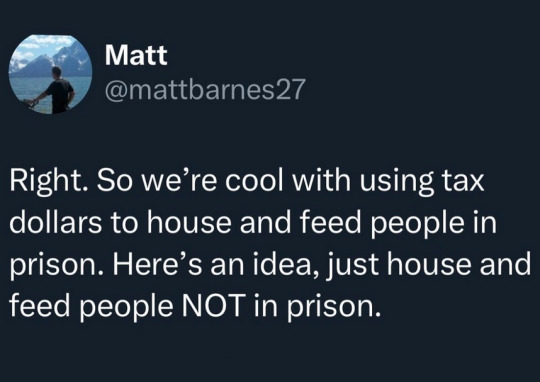
#leftism#anti capitalism#communism#socialism#anarchy#prison industrial complex#prison uniform#prison abolition#prison break#jail#behind bars#inmate#prison cell#prison of plastic#abolitionist#abolish capitalism#abolish the police#food insecurity#cooking#anarchism#anti capitalist#leftist#anticapitalism#anarchocommunism
198 notes
·
View notes
Text
Benjamin Lay: Uncompromising King

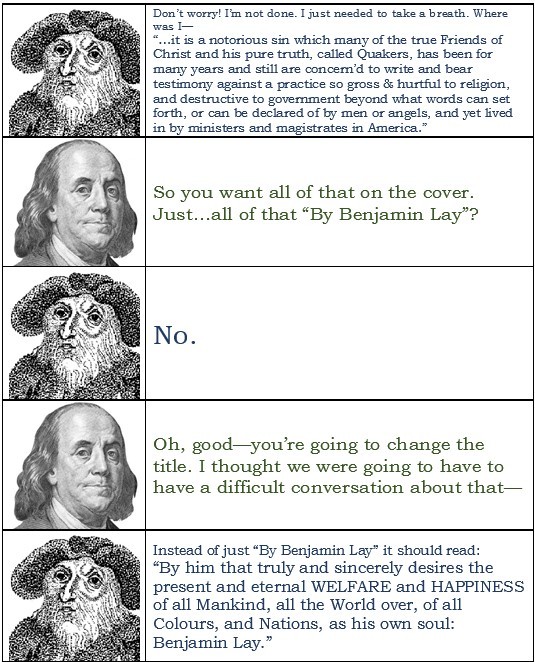
427 notes
·
View notes
Text
Legality ≠ morality
#abolition#abolitionist#acab1312#acab#abolish the police#abolish the state#abolish police#abolish ice#abolish prisons#abolish family policing#leftist theory#leftist#abolish landlords#abolish capitalism#abolish the supreme court#1312#human rights#incarcerated people#incarceration#cripple punk#cripplepunk#chronically couchbound#fuck 12
277 notes
·
View notes
Text

@radicalgraff
#abolish the police#food not bombs#anarchist#foodnotbombs#anarchism#anarchy#food is a human right#foodisaright#abolish capitalism#abolitionist#police abolition#prison abolition#abolish ice#abolish prisons
126 notes
·
View notes
Text
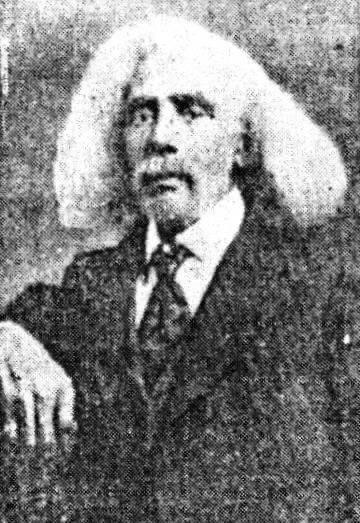
Joseph "Big Joe" Winters (1816 – 1916) was an African-American abolitionist and inventor who patented a wagon-mounted fire escape folding ladder mounted directly on fire wagons in 1878. He was born in Virginia to an African-American brickmaker and a Shawnee Indian mother. He later relocated to Chambersburg, Pennsylvania in 1830. During the time Winters lived in Chambersburg, he was active in the Underground Railroad.
#african#afrakan#kemetic dreams#africans#afrakans#brownskin#brown skin#joseph big joe winters#african american#shawnee#indian#asian#underground railroad#virginia#brickmaker#chambersburg#abolitionist#pennsylvania
105 notes
·
View notes
Text
xenogenders are criticized a lot for being impractical. if everyone has their own not widely known gender, people will not know what you're talking about.
that's part of the point. the more labels we have, the less power and authority western gender has over us.
xeno labels are impractical if you're still using gender to oppress and discriminate.
#xenogender#abolitionist#gender abolition#radical#gender queer#queer#anarcha feminism#queer anarchism#anarchist#anarchism#communism#ancom#lgbtq#mogai
85 notes
·
View notes
Text
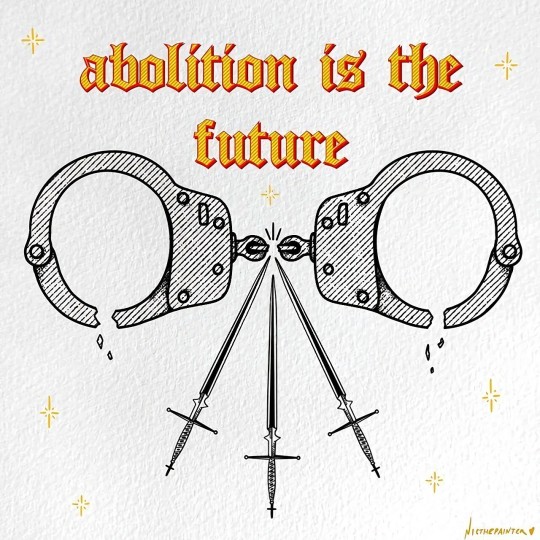
#abolish the supreme court#gender abolition#prison abolition#abolish the police#police abolition#161#1312#abolition#abolitionist#family abolition#working class#class war#classwar#ausgov#politas#auspol#tasgov#taspol#australia#neoliberal capitalism#fuck neoliberals#anthony albanese#albanese government#anti capitalist#antiwar#anti capitalism#antiauthoritarian#antinazi#antinationalist#antifa
77 notes
·
View notes
Text
just talked to my lib grandpa about prison/police abolition and now he is an abolitionist 😎
#prison abolition#abolitionist#police abolition#leftist debate#w#abolish the police#leftism#leftist#anarchism#anti capitalism
62 notes
·
View notes
Text
The famous anti-slavery token made by the Wedgewood pottery in 1787 entitled 'Am I not a Man and a Brother?' was popular among abolitionists in England. But it would be 1838 before a coin was struck for enslaved women's rights – 'Am I not a Woman and a Sister?' – and then it was made for the American Anti-Slavery Society and popular in America.

English elite women did not feel a sisterhood with women of a lower class or another race. Elite women called for political rights for their own class, not for anyone else. They even used the example of slavery to support their campaign – comparing their inequality to slavery.
"Normal Women: 900 Years of Making History" - Philippa Gregory
#book quotes#normal women#philippa gregory#nonfiction#anti slavery#token#wedgewood pottery#80s#1780s#18th century#am i not a man and a brother#abolitionist#england#30s#1830s#19th century#coin#am i not a woman and a sister#american anti slavery society#classism#white feminism#slavery#sisterhood#solidarity
18 notes
·
View notes
Text
Might add more to this later but self proclaimed radical feminists ideas of how abolishing gender works is so completely far off. And trans people, especially nonbinary people, people with xenogenders, and our supporters, are doing a lot better job of working towards that then they are. Because the first step to getting rid of a widespread social construct that has been heavily implanted in people for centuries, is testing the limits of it and expanding the boundaries of what has been considered the "right" way to engage with the social construct or exist inside of it. You cannot go from step one to the last step of 'this social construct no longer exists, it's being abolished!', it simply does not work in practice. There are middle steps. And with gender, supporting trans people help accomplishes those middle steps. Because the rigid boxes of gender being kept around hurts us at higher rates because of how we don't fit into it "correctly". Gnc and intersex people are other groups more heavily affected. Gnc people for having the 'audacity' to not go along with rigid gender roles. Intersex people for not looking like or having people's constructed idea of what their gender should look like or their body should be like. Trans people for having the 'audacity' to not agree with the box they where shoved into that didn't fit them. You cannot stretch the limits of gender, let alone stretch it enough that it becomes obstinate enough to be considered abolished, while pushing aside, fighting against, or attacking the main groups whose existence challenges these limits society put in place.
#long post#feminism#intersectional activism#trans#transgender#activism#intersectionality#critical thinking#abolition#abolitionist#social construct#trans activism#trans rights#anti radfem#anti gender critical
366 notes
·
View notes
Text
#OTD in 1845 – Abolitionist Frederick Douglass speaks to a packed house in Cork on the subject of slavery.
Abolitionist Frederick Douglass speaks to a packed house in Cork on the subject of slavery.
“Mr. President, Ladies and Gentlemen,—There is perhaps no argument more frequently resorted to by the Slaveholders in support of the slave system, than the inferiority of the slave. In the name of Christianity, I demand that people of these countries be interested in the question of slavery! In vain may…
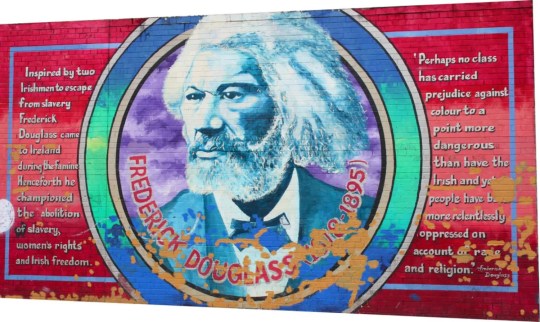
View On WordPress
#Abolitionist#African-Slavery#America#Belfast#Cork#Falls Rd#Frederick Douglass#Frederick Douglass mural#History#History of Ireland#Irish History#Irish-American History#Slavery
27 notes
·
View notes
Text

Killing a teenager over a pizza, this is America.
417 notes
·
View notes
Text

#leftism#anti capitalism#communism#socialism#anarchy#prison abolition#rip twitter#gender abolition#abolitionist#police abolition#state violence#prison industrial complex#segregation#us politics#psych abolition
11 notes
·
View notes
Text
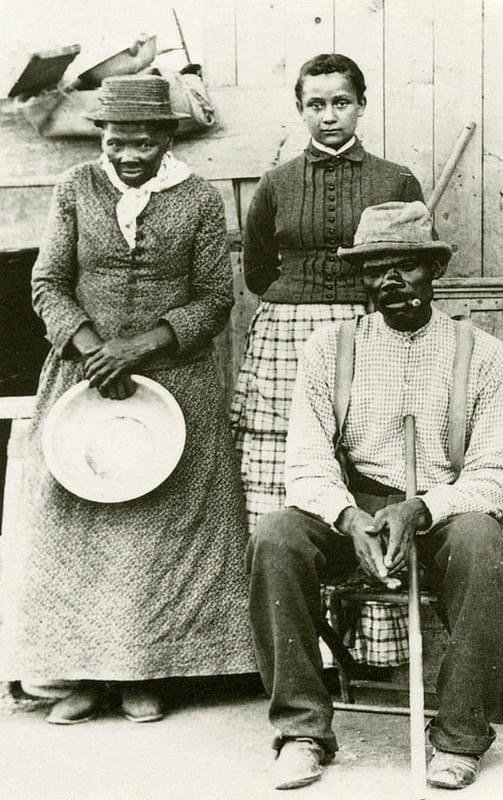
Harriet Tubman (to the left) with adopted daughter Gertie and husband Nelson Davis, ca. 1887.
Harriet Tubman (1822-1913) was an American abolitionist and political activist. Born a slave in Maryland, Tubman escaped to Philadelphia, then immediately returned to Maryland to rescue her family. She made some 13 missions to rescue about 70 people, family and friends.
Photo: William Haight Cheney.
#african#deep reddish brown skin#afrakan#kemetic dreams#brownskin#afrakans#africans#brown skin#african americans#african american#african american history#african america history#harriet tubman#maryland#abolitionist#philadelphia#nelson davis#gertie
257 notes
·
View notes